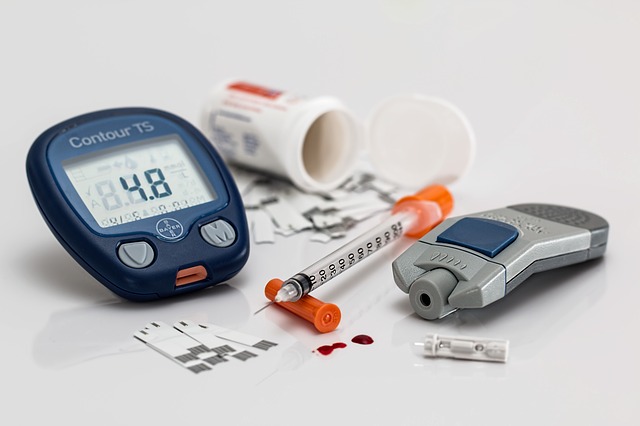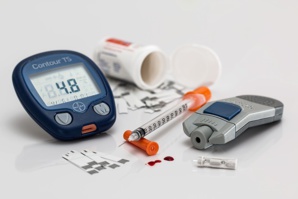Dailycsr.com – 17 June 2016 – HSE reports that the government need to give “tax breaks” for helping the employers to cope up with the increasing “sickness absence” of the workers, reported the EEF trade association after completing “its annual absence survey”.
Over the past two years, the percentage of sick leave has increased by forty one percent in the “manufacturing companies”, reveals a survey report, while the same figure tallies with the results of the survey conducted for the year of 2015’s “sickness absence”. As per EEF, the introduction of “tax breaks” would “encourage” the employers to chip in for the staff’s “private medical treatment”, whereby lending a helping help to NHS.
In fact, survey reveals that as many as sixty percent of employers are ready to “pay for private treatment or workplace adjustments”, provided the same gets offset against their tax, while at present one fifth of the manufacturers are currently paying their staff’s “non-NHS medical treatment”.
Rewarding the employers with financial incentive would also be a good way to introduce “private healthcare” payment from the employers for their employees. In the long run, the same initiative will also help in “tackling the country's productivity problem”. In the words of the EEF’s Head of Health and Safety policy, Terry Woolmer:
“Keeping people fit and healthy, whilst enabling a speedy return to work from absence is essential to economic growth and improvements in productivity. However, currently we have long term absence on the increase and an under pressure NHS which is struggling to deal with the issue. Given this situation is only going to get worse with an ageing population radical action is now required.
“Government must now use fiscal incentives to encourage employers to pay for private medical treatment and allow it to be offset in the same way as other business expenses. Not only would this help take the pressure off the NHS but it would allow a speedier return to work. This would be a win win for Government, the employee and employers.”
On the other hand, the “Fit for Work”, the “absence management service” introduced by the government in the month of September 2015, seems to have failed to engage the employers. HSE notes:
“The survey data also confirms that confidence in GPs' ability to make effective use of the fit note continues to fall. Some 45% reported that it is failing to get employees back to work earlier, 10% more than said the same in 2010. Only 13% (compared to 24% in 2010) said the fit note has enabled employees to make an earlier return to work”.
The Managing Director at Jelf, Iain Laws, stated:
"Healthy employees can be up to three times as productive as those in poor health. They experience fewer motivational problems are more resilient to change and are more likely to be engaged with the business priorities. It is essential that companies have systems in place which recognise this and which place employee health provision at their heart."
References:
http://www.healthandsafetyatwork.com/
Over the past two years, the percentage of sick leave has increased by forty one percent in the “manufacturing companies”, reveals a survey report, while the same figure tallies with the results of the survey conducted for the year of 2015’s “sickness absence”. As per EEF, the introduction of “tax breaks” would “encourage” the employers to chip in for the staff’s “private medical treatment”, whereby lending a helping help to NHS.
In fact, survey reveals that as many as sixty percent of employers are ready to “pay for private treatment or workplace adjustments”, provided the same gets offset against their tax, while at present one fifth of the manufacturers are currently paying their staff’s “non-NHS medical treatment”.
Rewarding the employers with financial incentive would also be a good way to introduce “private healthcare” payment from the employers for their employees. In the long run, the same initiative will also help in “tackling the country's productivity problem”. In the words of the EEF’s Head of Health and Safety policy, Terry Woolmer:
“Keeping people fit and healthy, whilst enabling a speedy return to work from absence is essential to economic growth and improvements in productivity. However, currently we have long term absence on the increase and an under pressure NHS which is struggling to deal with the issue. Given this situation is only going to get worse with an ageing population radical action is now required.
“Government must now use fiscal incentives to encourage employers to pay for private medical treatment and allow it to be offset in the same way as other business expenses. Not only would this help take the pressure off the NHS but it would allow a speedier return to work. This would be a win win for Government, the employee and employers.”
On the other hand, the “Fit for Work”, the “absence management service” introduced by the government in the month of September 2015, seems to have failed to engage the employers. HSE notes:
“The survey data also confirms that confidence in GPs' ability to make effective use of the fit note continues to fall. Some 45% reported that it is failing to get employees back to work earlier, 10% more than said the same in 2010. Only 13% (compared to 24% in 2010) said the fit note has enabled employees to make an earlier return to work”.
The Managing Director at Jelf, Iain Laws, stated:
"Healthy employees can be up to three times as productive as those in poor health. They experience fewer motivational problems are more resilient to change and are more likely to be engaged with the business priorities. It is essential that companies have systems in place which recognise this and which place employee health provision at their heart."
References:
http://www.healthandsafetyatwork.com/


 Would The Employers Pay Employees’ Private Medical Bills?
Would The Employers Pay Employees’ Private Medical Bills?





 Companies
Companies